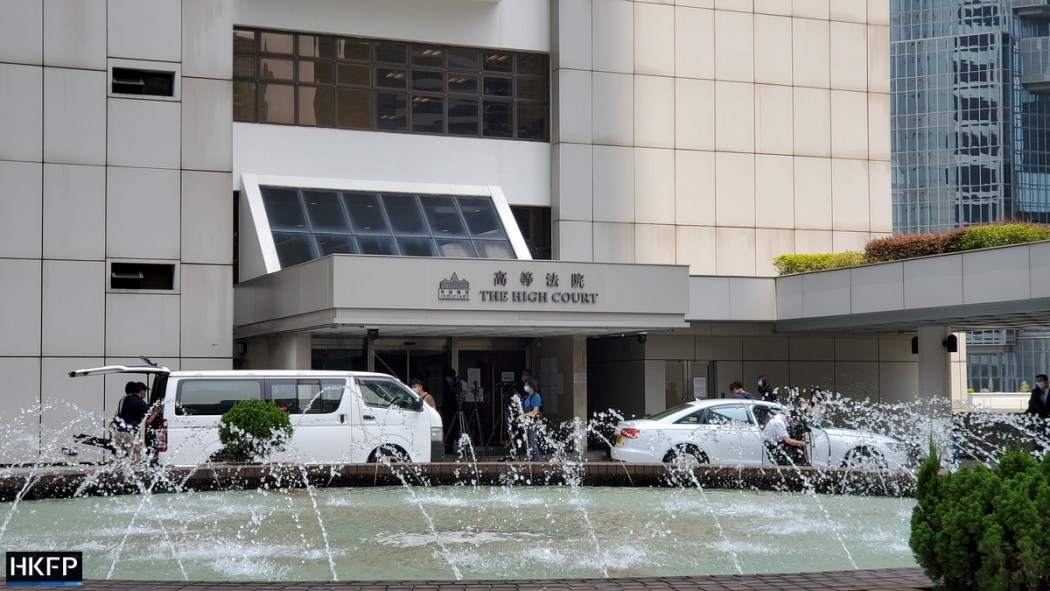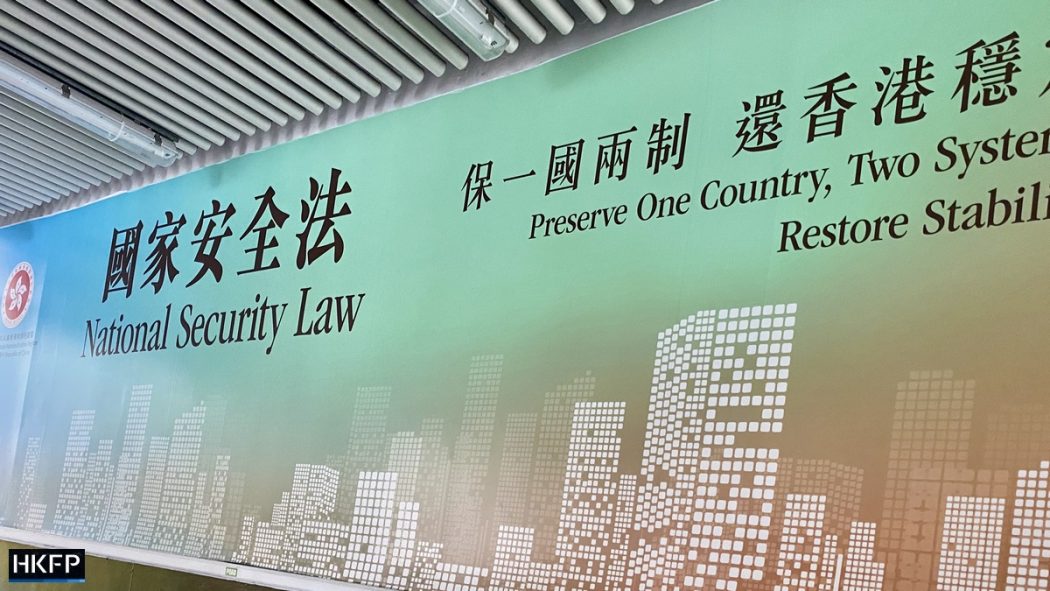These days, the bad news coming out of Hong Kong seems to arrive on an almost daily basis: Legco elections delayed for a full year. Pan-democratic legislators barred from running for re-election. Apple Daily publisher Jimmy Lai arrested, along with prominent activist Agnes Chow and several others. Pro-democratic legislators charged with rioting in Yuen Long, even though video footage quite clearly shows them coming to the aid of victims of the attack. The list goes on and on.
Recent weeks have brought more worrying news for those concerned about judicial independence and the rule of law in Hong Kong. Sing Tao Daily and Apple Daily reported that Stanley Ho Chun-yiu, a magistrate, had been re-assigned to an administrative posting and would no longer hear cases. (Hong Kong Free Press also reported on the case). Ho’s rulings, in particular his recent acquittal of District Councillor Jocelyn Chau on charges of assaulting a police officer, have drawn the ire of pro-Beijing lawmakers, one of whom publicly demanded his removal from protest-related cases.

The move to reassign Ho is quite concerning. And yet there are also some positive signs coming from the judiciary, emerging – surprisingly enough – from the first criminal case to be tried under Hong Kong’s new national security law (NSL). In a pair of decisions issued on August 21 and 25, High Court judges turned down Tong Ying-kit’s writ of habeas corpus – a challenge to the fundamental legality of an individual’s detention – and also rejected his bail application.
But Tong’s loss may turn out to be a small but significant gain for judicial independence and the rule of law. In both decisions the judges reaffirmed the role of Hong Kong’s judiciary in protecting basic human rights, including the rights of defendants charged with serious crimes under the NSL.
The facts of the case are well-known: Tong, 23, is accused of driving his motorcycle into a group of police officers and injuring three. Tong was taking part in the July 1 protests and was allegedly carrying a pro-democracy (in the view of the government, a pro-independence) banner. Given that his alleged actions put protesters and police alike at risk, Tong could have been charged with various garden-variety criminal offences. (In fact, Tong was charged with dangerous driving.) Instead, the government moved quickly to make him the first person charged under the national security law, which at that point had been on the books for less than 24 hours.
Tong’s lawyer, Philip Dykes, advanced three key arguments on behalf of his client. First, that Article 42(2) of the national security law — which deals with bail in NSL cases — is “premised on an assumption of guilt” and is therefore meant to deny bail to NSL defendants in virtually all cases. It therefore infringes on his client’s right to bail, and by extension his right to be presumed innocent. Second, Dykes argued that the NSL’s provisions on judicial selection -which give the Chief Executive a more significant role in selecting judges – infringe on judicial independence and thus violate the Basic Law.

Finally, Dykes argued that the lack of an authentic English-language version of the law restricted his client’s choice of counsel, given that many lawyers – including Dykes himself – could not read the official Chinese version of the law.
In a nod to the crucial role that bail plays in a fair trial, the judges dealt most extensively with that prong of Dykes’s argument. They rejected his assertion that Article 42(2) is meant to deny bail in virtually all NSL cases. Instead, they held that Article 42(2) largely reinforces – not to say duplicates – the bail provision of Hong Kong’s Criminal Procedure Ordinance, which does allow for the denial of bail in some cases, especially when the judge believes that the accused may commit additional crimes after being released or may attempt to flee Hong Kong before trial.
In coming to this conclusion, the judges relied heavily on the basic rights provisions of the Basic Law and the Bill of Rights Ordinance, including Article 28 of the Basic Law, which protects Hong Kong citizens against arbitrary arrest and detention. This reliance on the Basic Law is key: it means that the NSL is not divorced from Hong Kong’s overall legal framework, and that its constitutional document – including its key human rights provisions – apply to the NSL. As the judges put it, “the court is under a duty to protect the fundamental rights accorded by the Basic Law and the Hong Kong Bill of Rights.”

Such direct language would have been taken as a truism before the NSL was passed. After July 1, however, the court’s seemingly rote restatement of its core constitutional function takes on a very different character. In the context of the NSL’s various direct and indirect threats to Hong Kong’s autonomy and to the rule of law, the dual rulings send a subtle but undeniable signal to the Hong Kong government and to Beijing: the judiciary has not given up on its duty to protect the human rights of the people of Hong Kong.
Quite wisely, the judges also pointed to the NSL’s basic human rights provisions and to its references to the Basic Law, using those articles to bolster their finding that Article 42(2) did not, in fact, compel Hong Kong judges to deny bail in all NSL cases. In so doing, the judges may have at least partially isolated their rulings from attack by pro-Beijing politicians, many of whom have already declared their full and fulsome support for the NSL. If the NSL itself protects the presumption of innocence, then who could argue against a ruling that purports to give concrete meaning to that core value?

The dual decisions are by no means perfect: the judges could have given closer scrutiny to Dykes’s claim that the role of the Chief Executive in selecting NSL judges undermines judicial independence, for example. Judge Alex Lee, the author of the August 25 bail decision, also might have published his decision in full rather than redacting his discussion of the reasons for denying bail to Tong Ying-kit: the intense public interest in the case might well justify additional transparency.
Still, for those who continue to worry about Hong Kong’s judicial independence, especially in light of the reassignment of Stanley Ho Chun-yiu, this pair of rulings should be taken as a welcome reminder that Hong Kong’s judiciary is holding onto – at least for now – its status as the SAR’s key bulwark of human rights and the rule of law.
For Tong himself, the dual rulings may well be cold comfort. He must continue to prepare for trial from his prison cell, a prospect that no defendant would relish. That said, the same decisions denying him his freedom pending trial also make clear that the NSL does not strip him of his constitutional rights. That important declaration may well prove even more vital in the long run, both to Tong himself and to others facing imminent prosecution under the national security law.
Thomas E. Kellogg is the executive director of the Georgetown Center for Asian Law, and also an adjunct professor at Georgetown University Law Center.
Support HKFP | Policies & Ethics | Error/typo? | Contact Us | Newsletter | Transparency & Annual Report | Apps
Help safeguard press freedom & keep HKFP free for all readers by supporting our team
| HKFP is an impartial platform & does not necessarily share the views of opinion writers or advertisers. HKFP presents a diversity of views & regularly invites figures across the political spectrum to write for us. Press freedom is guaranteed under the Basic Law, security law, Bill of Rights and Chinese constitution. Opinion pieces aim to point out errors or defects in the government, law or policies, or aim to suggest ideas or alterations via legal means without an intention of hatred, discontent or hostility against the authorities or other communities. |

More HKFP OPINION:
HKFP has an impartial stance, transparent funding, and balanced coverage guided by an Ethics Code and Corrections Policy.
Support press freedom & help us surpass 1,000 monthly Patrons: 100% independent, governed by an ethics code & not-for-profit.










